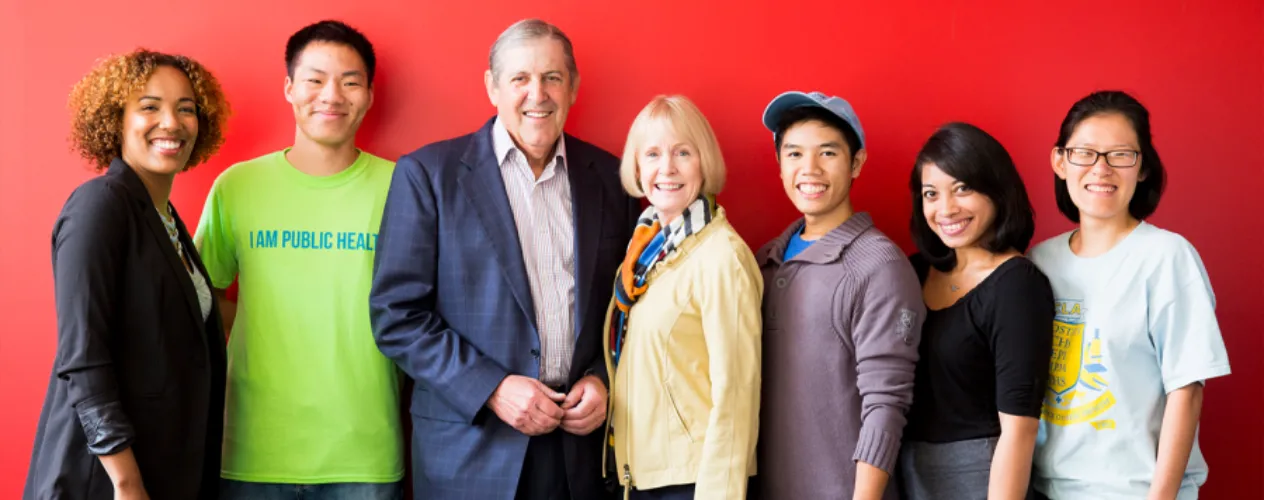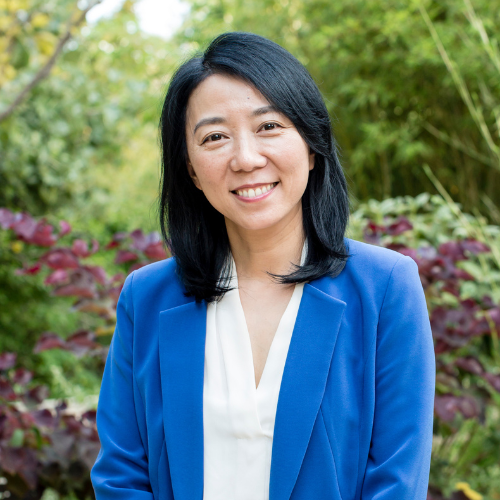Jonathan and Karin Fielding establish 5 student fellowships at the UCLA Fielding School of Public Health
Called the Fielding Fellowships, the awards will provide up to $40,000 per year for tuition & living expenses beginning with the 2019-20 year.

Longtime public health advocates Dr. Jonathan Fielding and Karin Fielding and their sons have established five fellowships for outstanding, newly admitted UCLA Fielding School of Public Health students.
Called the Fielding Fellowships, the awards will provide up to $40,000 per year for tuition and living expenses beginning with the 2019-20 academic year. All students pursuing a master’s in public health degree at the Fielding School are eligible if their interests align with one or more of the Fellowships.
“We are incredibly grateful to Jonathan and Karin Fielding for their vision and leadership in support of our students, and their unwavering commitment to our school and public health community,” Dr. Yifang Zhu, acting dean of the UCLA Fielding School of Public Health, said. “Fielding Fellows will become powerful global agents for change, working to advance public health and well-being for generations to come.”
In 2012, Dr. Fielding and his wife, Karin, made a gift valued at $50 million to UCLA’s School of Public Health. In honor of their generosity, the school was renamed the UCLA Jonathan & Karin Fielding School of Public Health.
Dr. Fielding is widely known for his contributions to the field of public health. He served as director and health officer of the Los Angeles County Department of Public Health for 16 years, which included supervising the distribution of public health services to more than 10 million people. During his tenure with the department, he oversaw several public health initiatives, including the creation of a letter grading system that informs the public about the food safety standards at Los Angeles County restaurants. He has authored or coauthored more than 300 articles, commentaries, editorials and chapters on various aspects of public health, preventive medicine and health services.
Currently, Dr. Fielding is a distinguished professor of health policy and management at the UCLA Fielding School of Public Health and a distinguished professor of pediatrics at the David Geffen School of Medicine at UCLA. He is also founder of the UCLA Center for Health Advancement, which provides evidence-based information about health and health disparities to policy makers. Dr. Fielding also chairs the U.S. Community Preventive Services Task Force and recently served as a presidential-appointed member of the National Advisory Group on Prevention, Health Promotion and Integrative and Public Health. He is the recipient of the UCLA Medal, the university’s highest honor.
Karin Fielding spent much of her professional career in marketing and communications. She is an active member of the Everychild Foundation, whose mission is to support Los Angeles County children who are suffering due to disease, disability, abuse or neglect. She is also a member of the Art Collectors Council of The Huntington Library, a trustee of the American Folk Art Museum and a board member of TreePeople, a non-profit focused on environmental conservation.
The Fielding Fellowships cover public health issues that each member of the Fielding family cares deeply about. They include:
The Andrew B. Fielding Fellowship in Mental Health, which will support students passionate about addressing mental health issues.
The Preston J. Fielding Fellowship in Environmental Health, which will support students dedicated to protecting and fostering our environment.
The Jonathan E. Fielding Fellowship in Health Policy, which will provide support to students passionate about developing and enacting policies to address health disparities and injustice, both locally and globally.
The Karin B. Fielding Fellowship in Maternal and Child Health, which will support students dedicated to advancing the well-being of women and children through initiatives focused on strengthening family resilience and early childhood development as well as eliminating barriers to health services and care.
The Jonathan E. and Karin B. Fielding Family Fellowship in Nutrition, which will provide students the training and opportunities to address the livelihoods of vulnerable populations, work to ensure adequate nutrition in communities and tackle the obesity epidemic that is contributing to the spread of chronic disease.
The UCLA Fielding School of Public Health, founded in 1961, is dedicated to enhancing the public's health by conducting innovative research, training future leaders and health professionals from diverse backgrounds, translating research into policy and practice, and serving our local communities and the communities of the nation and the world. The school has more than 600 students from more than 25 nations engaged in carrying out the vision of building healthy futures in greater Los Angeles, California, the nation and the world.
Faculty Referenced by this Article

Professor of Community Health Sciences & Health Policy and Management, and Associate Dean for Research

